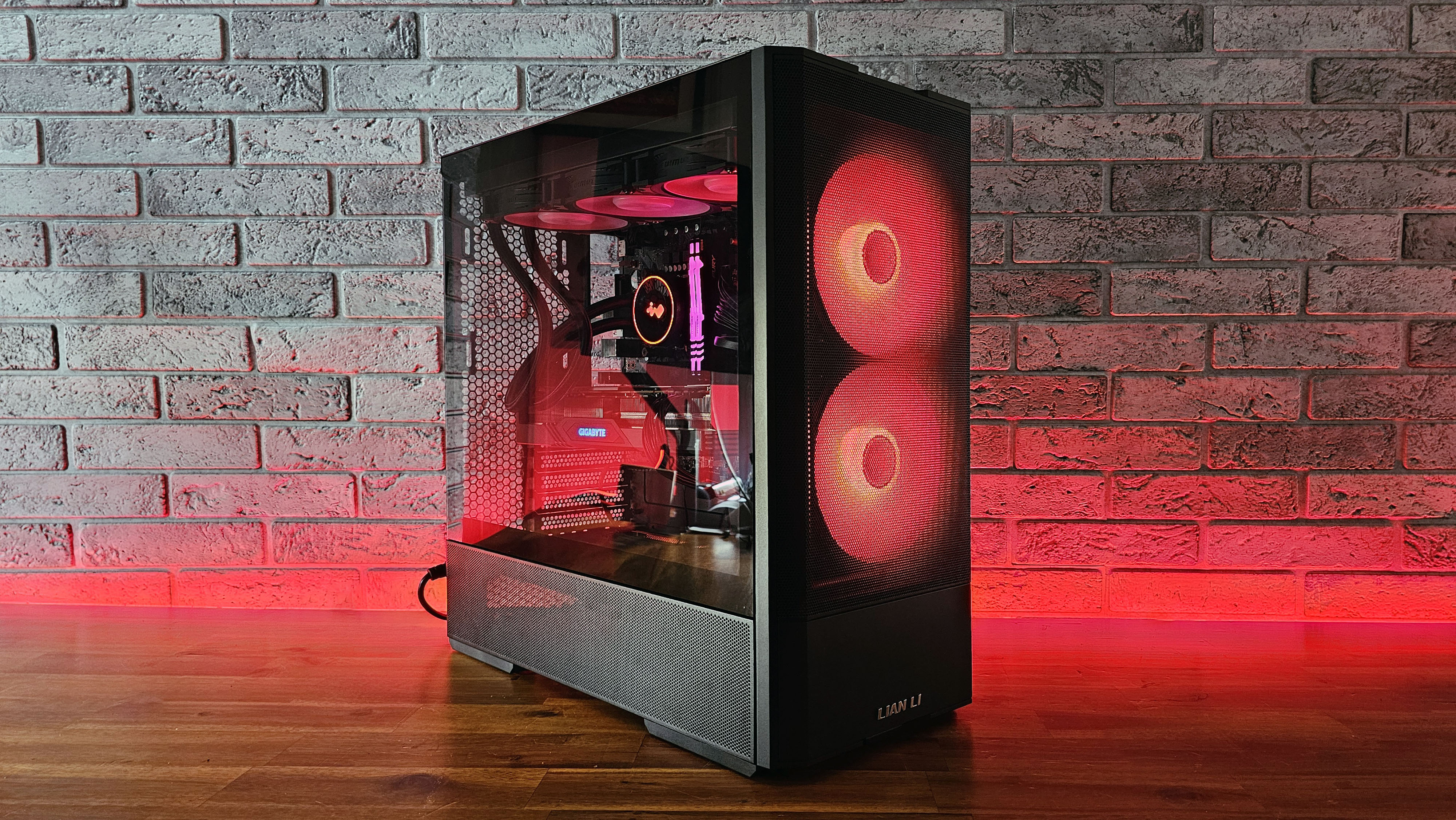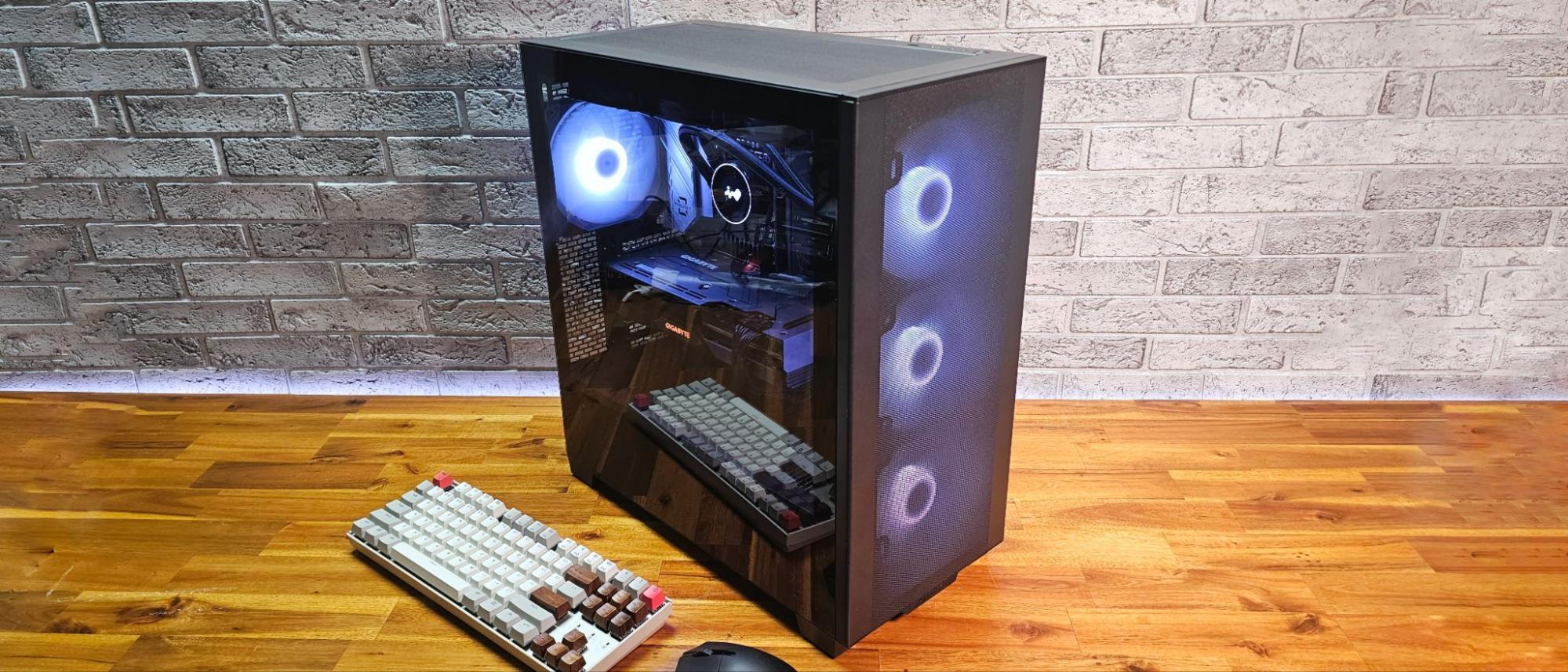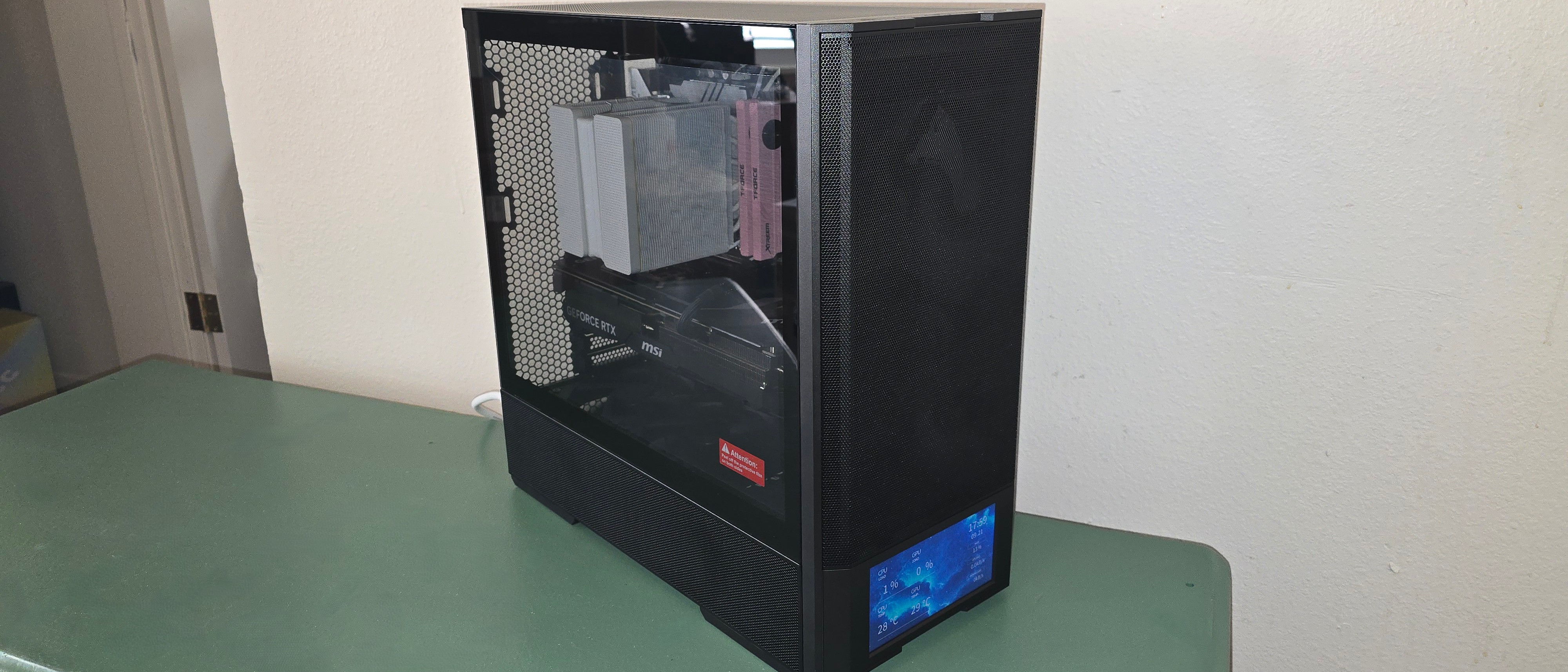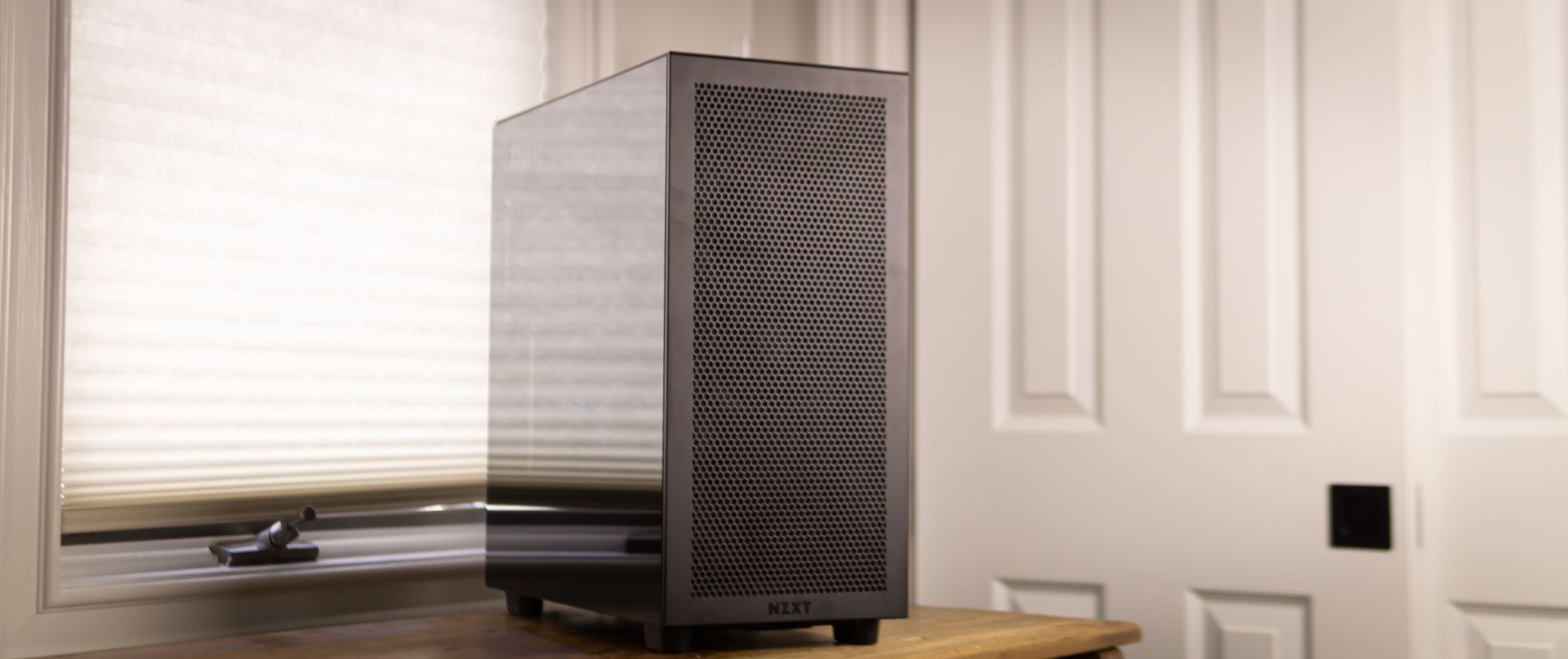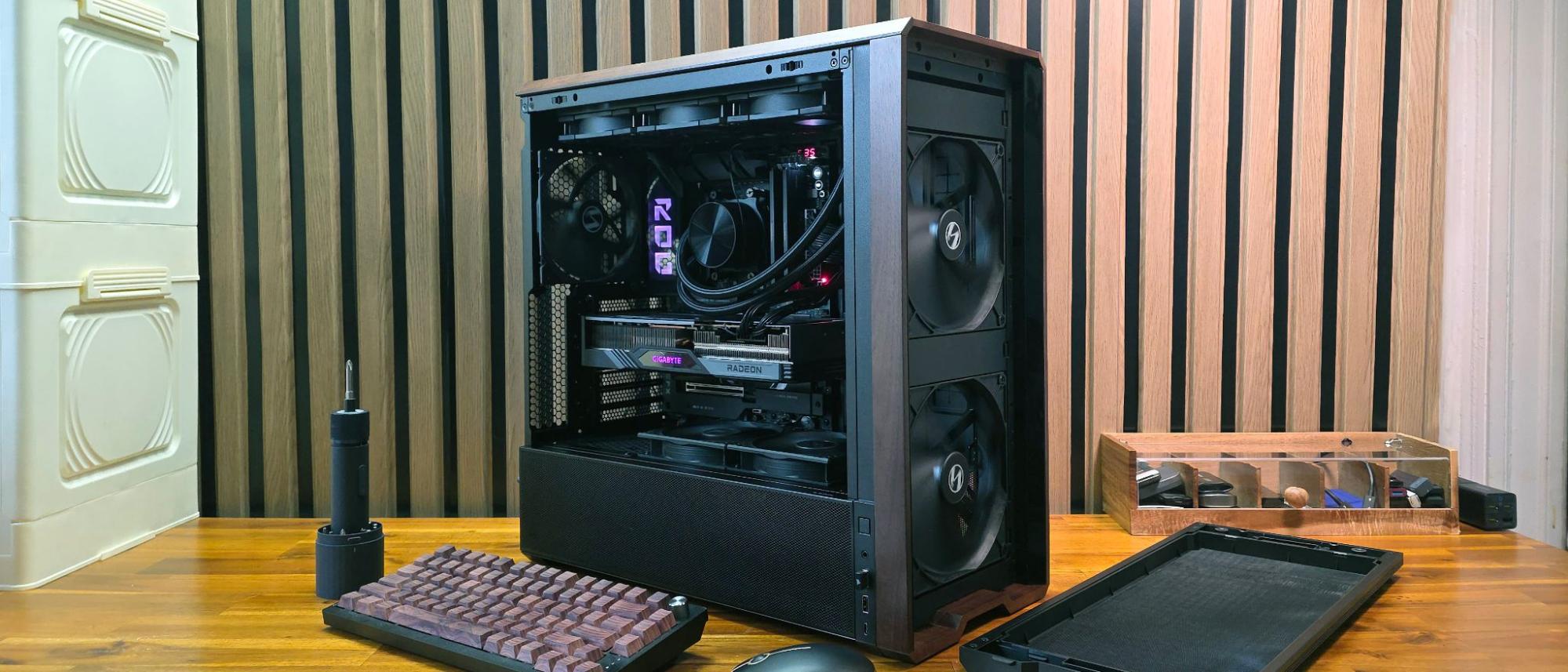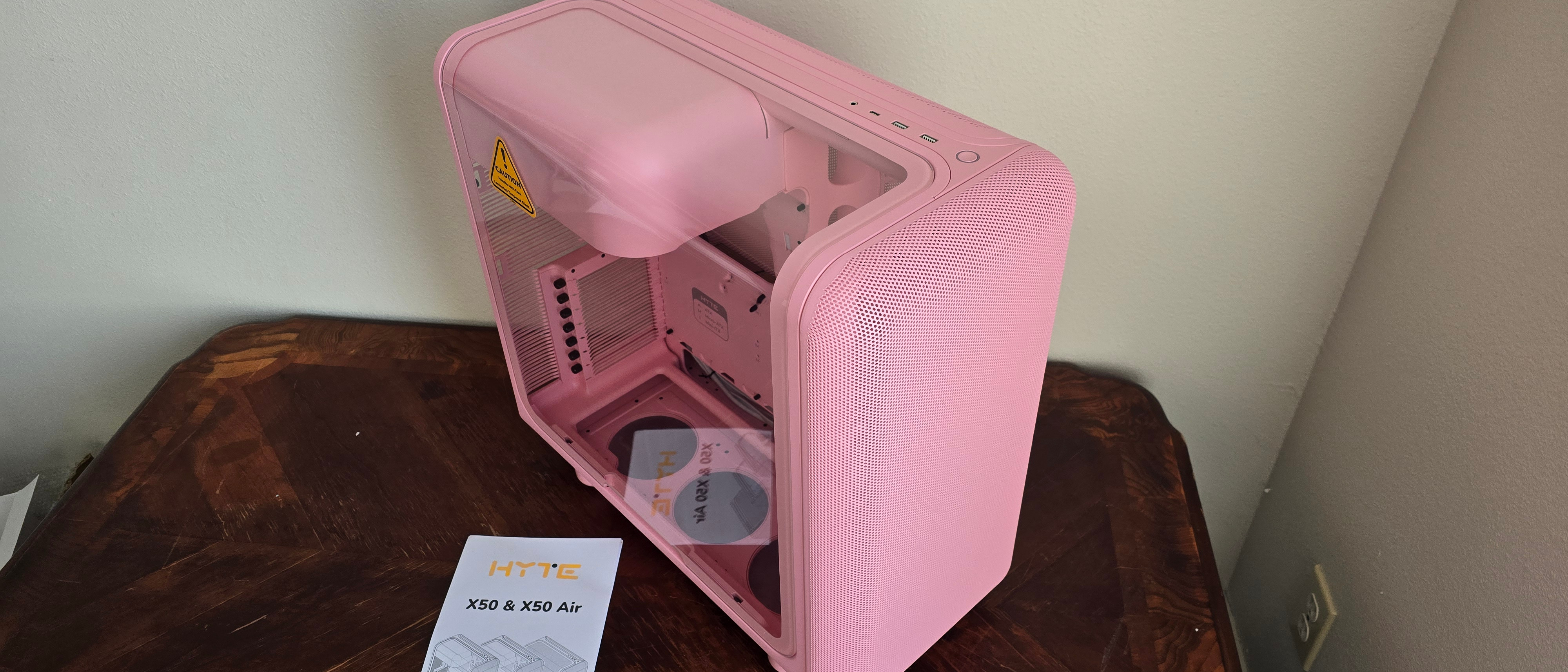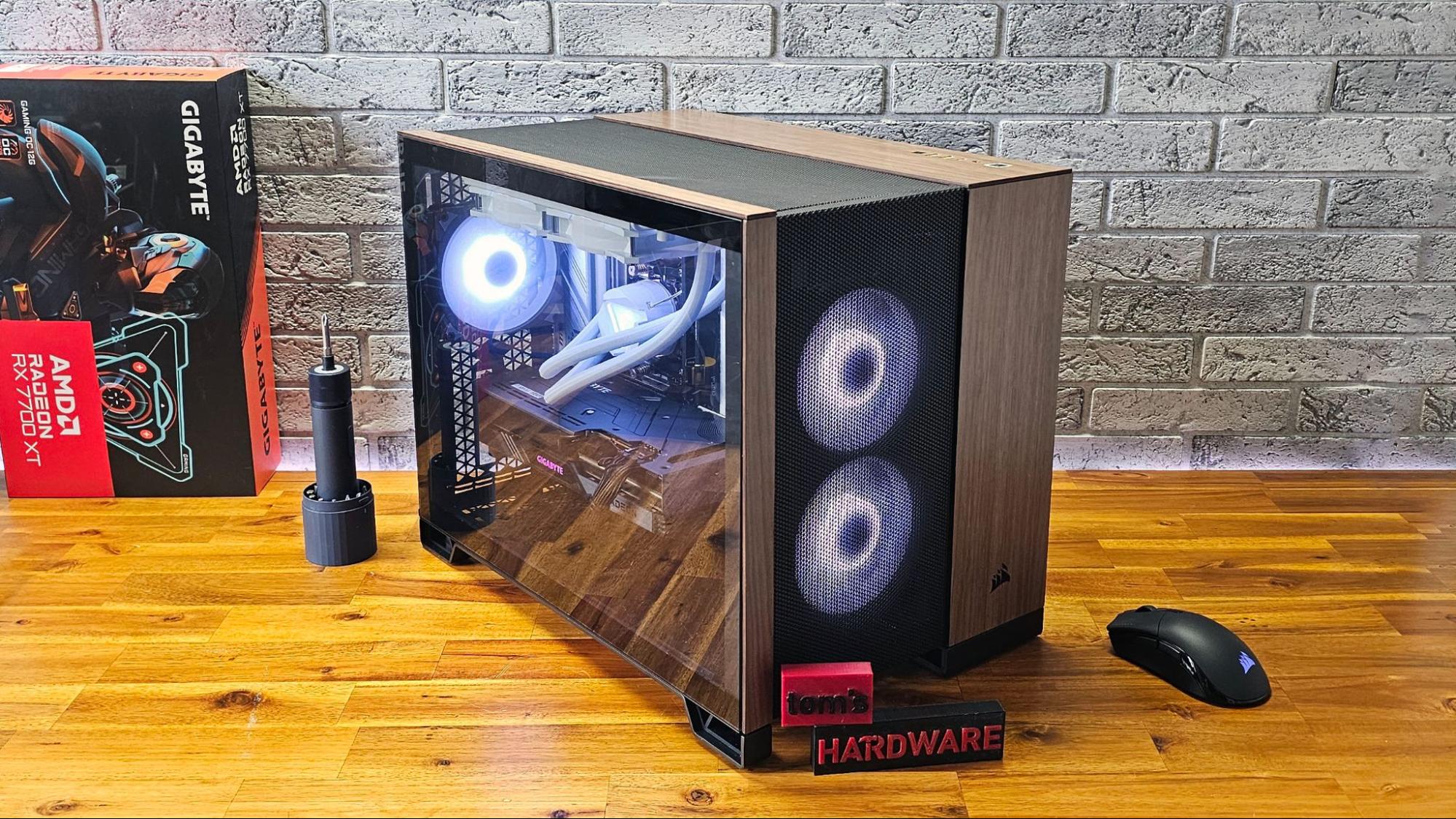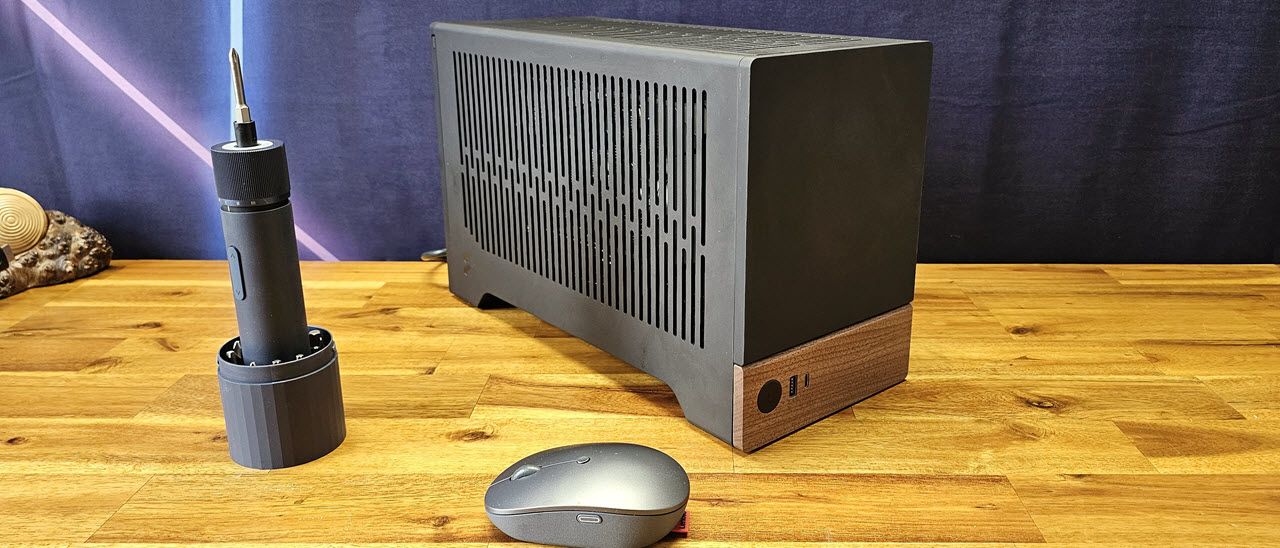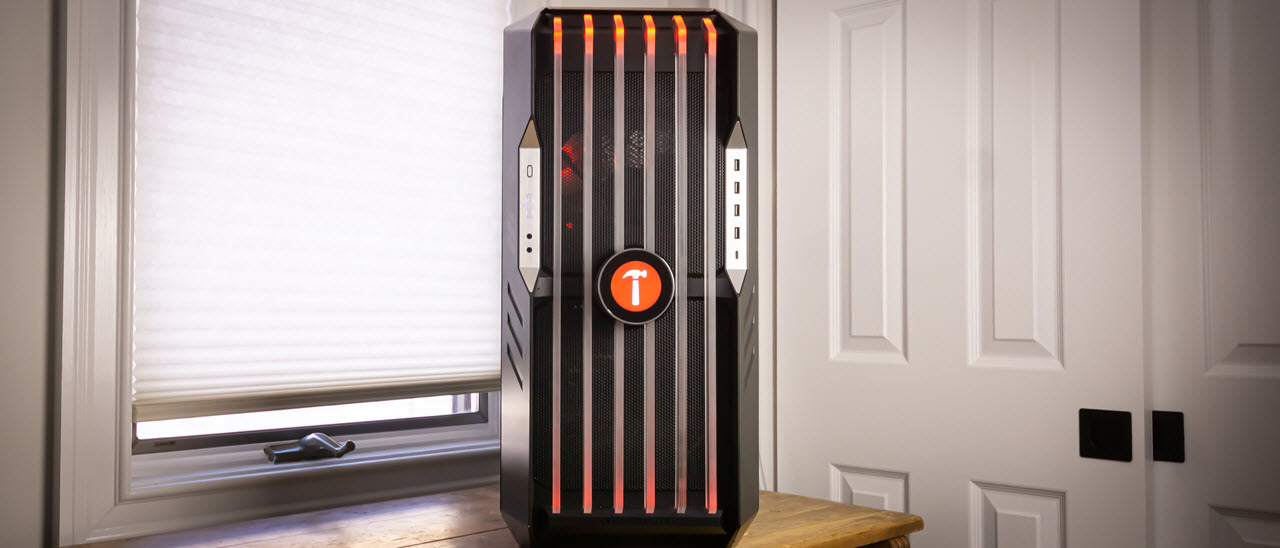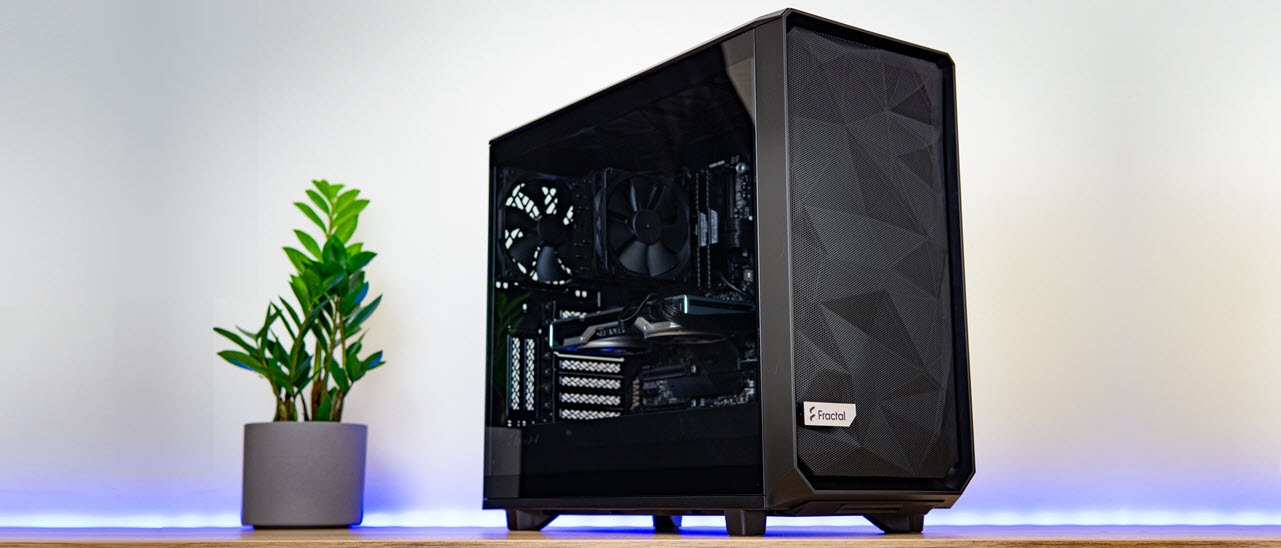Best PC Cases 2026: Our Tested Picks for Your Next Build
Our cooling, noise, and build tests reveal the best PC cases for your next build.
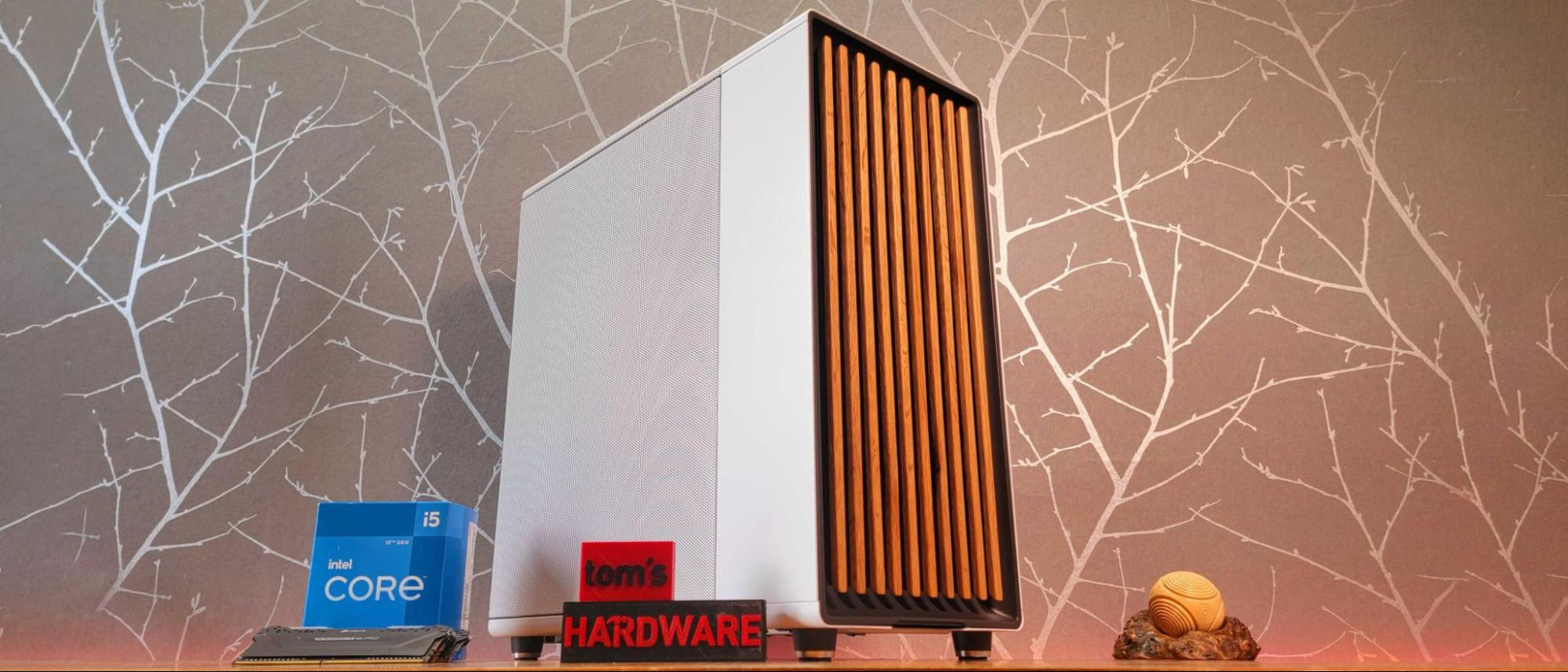
List in brief
1. Best-Looking PC Case
2. Best Budget ATX Gaming Case
3. Best Budget Back-Connect ATX Case
4. Best PC Case With a Screen
5. Best Mainstream Airflow-Focused Case
6. Best Performance-Focused ATX Case
7. Best Colorful PC Case
8. Best Case for Rear-Connector Motherboards
9. Best Design-Focused Mini-ITX Case
10. Best High-End XL/EATX Case
11. Best Large 'Fish Tank' PC Case
12. Best Workstation Case
13. Shopping Tips
Builders often don't pay enough attention to the plethora of case options available. Or they push the decision off until the end of the component-choosing process. But if you care at all about cooling or how your system looks, I'd advise considering your case options early when planning your build.
The best PC case for you will dictate the system's size, shape, and looks, and what fits inside. The PC case is also a major factor in how quiet your system will be (or how noisy it can get) under load, thanks to any included fans, plus materials like metal mesh or glass panels. These aspects also hugely impact the cooling potential of your rig.
If you want a compact, space-saving PC, consider one of the best Mini-ITX cases to minimize your PC’s footprint on your desk. Or you can go big and get a chassis like Corsair's Obsidian 9000D or Be Quiet's Dark Base Pro 901, to house a massive workstation or gaming rig with acres of expansion possibilities. But really, you don't need a massive case these days to house the best high-end components.
Below, we’ve selected the best PC cases we've tested, from the dozens of models we've reviewed in recent years. So long as you check to make sure the parts you want to use will fit in it and you like how it looks, one of the cases below should keep you and your PC parts happy for years to come.
Please keep an eye out on our CES 2026 coverage where we've scheduled meetings with several vendors with upcoming chassis including Cooler Master, Corsair, Lian Li, Inwin, MSI, and more. We'll get a chance to review them and add update our best list.
11/13/2025 Update: In the last month or so, we tested Montech's curved-glass, angled-intake King 45, which you may want to consider if you prioritize GPU temperatures and putting all your components on display. Also, we went hands-on with Lian Li's Lancool 217 INF, an RGB and infinity mirror take on the company's excellent original Lancool 217. The latter case is a good fit if you like its look and good airflow is important.
Best PC Cases
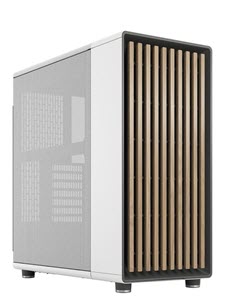
Best-Looking PC Case
A unique wood-and-mesh front and lots of airflow-focused features at an affordable price, Fractal's North is a fantastic case with performance that's just as impressive as its looks.
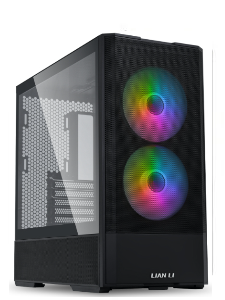
Best Budget ATX Gaming Case
At around $80 with four fans (two RGB and two blowing directly on the GPU), plus a whole lot of mesh, the Lancool 207 is a budget airflow champ. Its sideways PSU mount and great cable routing also make it easier to build in. The only feature it lacks is back-connect motherboard support, but that's still a niche – especially if you're building on a tight budget.
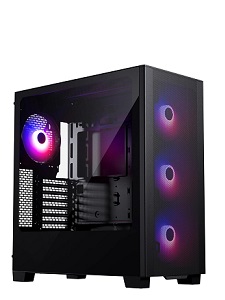
Best Budget Back-Connect ATX Case
With four 140mm ARGB fans, a glass side panel, and a price around $80, the Phanteks XT Pro Ultra is one of the best values in the PC case space. It doesn't skimp on airflow or aesthetics, has room for top-end components, and even supports new rear-connector motherboards for a clean interior.
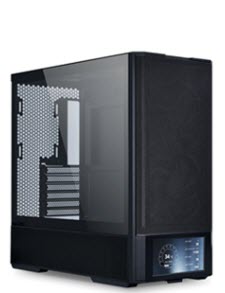
Best PC Case With a Screen
Lian Li takes its excellent performance-focused budget 207 case and adds a bright screen on the front for about $25 more. With excellent cooling and a versatile display up front, the Lancool 207 Digital is easy to recommend. Just note that the fans on this model lack RGB lighting.
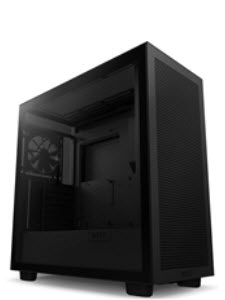
Best Mainstream Airflow-Focused Case
A revamped classic, focused on cooling performance, which also kept our components surprisingly quiet under load, the H7 Flow is a breeze to recommend.
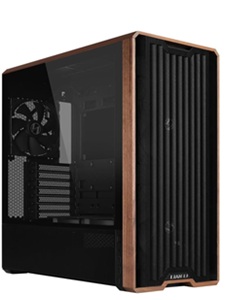
Best Performance-Focused ATX Case
With five included fans, attractive wood trim, lots of cable routing options, large motherboard support, and ample storage options, the Lancool 217 is a great option for those who prioritize cooling, especially if you'd rather avoid RGB. There is, though, an included PWM / ARGB hub for adding your own internal case glow.
Show More PC Cases ⬇
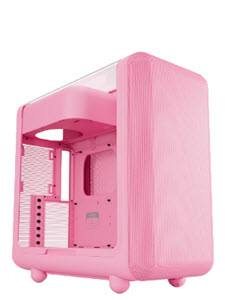
Best Colorful PC Case
If you’re looking for a case that’s sure to stand out, without sacrificing cooling, it’s hard to beat Hyte’s X50, with all its rounded corners, curved glass, and six color options, including purple, pink, green, and red, along with the usual black and white. It’s also one of the best-built cases we’ve had the pleasure of testing.
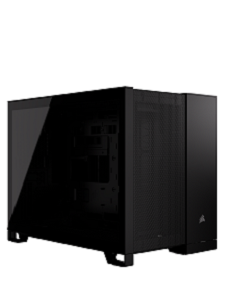
Best Rear-Connector Motherboard Case
For builds with rear-connector (MG-RC) motherboards, the 2500D is the best case we've tested so far. This Micro ATX chassis gets the basics right, while also providing extra space behind the motherboard for cable slack, which you'll have a lot of since you aren't routing most to the front.
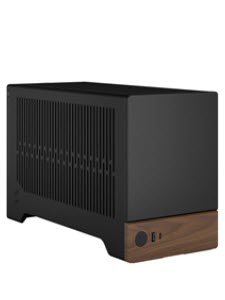
Best Design-Focused Mini-ITX Case
With its striking wood-accented front panel and extremely compact design, the Terra will look great on your desk. Just keep in mind you’ll need a small-form-factor CPU cooler, especially if you also plan on installing a powerful graphics card.
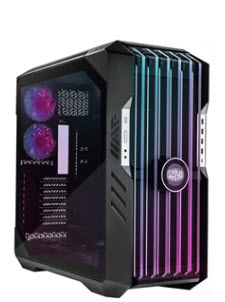
Best High-End XL or EATX Case
This visually striking beast of a case offers excellent performance, a striking RGB-lit glass grille, and an LCD screen. It's also very expensive, but doesn't pull any punches when it comes to features.
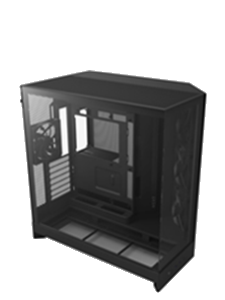
Best Large "Fish Tank" PC case
NZXT’s 2025 H9 Flow has a sleek design, without RGB bling. It's spacious inside, with lots of room to work with on both sides of the case.
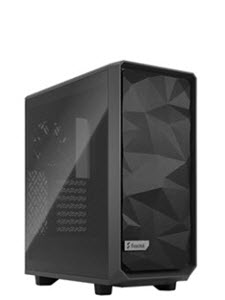
Best Case for High-End Rigs and Workstations
All the space and breathing room you need for modern high-end workstation builds, plus excellent cooling performance.
The Best PC Cases You Can Buy Today
Why you can trust Tom's Hardware
Best-Looking PC Case
Specifications
Reasons to buy
Reasons to avoid
We aren't sure who asked for a PC case that mixed mid-century modern design (wooden slats and all) and high airflow, but we sure are glad that Fractal Design answered with the excellent North mid-tower. Available with either a mesh side (as we tested) or tempered glass, and in white with chrome accents on the IO and feet, or black with some seriously pretty brass, this is arguably the prettiest PC case ever produced, period.
And thanks to its pair of 140mm fans and an included side bracket (for the mesh model) that can hold another pair of 140mm fans (not included), the North has excellent thermals as well. Just note that it can get noisy when delivering those temps. The glass side panel may help a bit on the noise front, but likely at the cost of at least some thermal performance.
If you don't like the case's looks, then the company's Meshify 2 Compact (below), is probably a better option for you. But if you're after a case that matches the pretty furniture in your living room, has lots of room for storage, and won't break the bank at $130, nothing else comes close to the North. We hope Fractal's bold move inspires other case makers to try something different.
Read: Fractal Design North Review
Best Budget ATX Gaming Case
2. Lian Li Lanocool 207
Specifications
Reasons to buy
Reasons to avoid
Lian Li's Lancool 207 ATX PC case delivers a lot, including some unique features, for just $80 – or $85 if you want the white model. It ships with four fans (two RGB and two uniquely blowing directly on your GPU) and a whole lot of mesh, so airflow shouldn't be a concern. There's also space for large graphics cards and a pair of SATA drives, which should be enough for most of us in this modern M.2 world. Cable routing is also well-designed, making building and cleaning up the interior easier.
The sideways-mounted power supply setup is a unique design choice that mostly works well, but does limit your ability to use large power supplies (160mm in length or less). Aside from that, the only thing I don't like about this case is it's one of the few new models we have tested in 2024 that doesn't support rear-connector motherboards. If that's a feature you need, check out the also-excellent Phanteks XT Pro Ultra.
Read: Hands-on with Lian Li's Lancool 207 PC case: Rethinking ATX on a budget
Best Budget Back-Connect ATX Case
3. Phanteks XT Pro Ultra
Specifications
Reasons to buy
Reasons to avoid
Not long ago, a PC case with four 140mm RGB fans and a tempered glass side panel would have cost well north of $100. But Phanteks manages to deliver that, plus support for high-end components and emerging rear-connector motherboards, in a choice of black or white, for just $80. It's a great case for builders looking to put together a gaming rig with great cooling, who want to spend most of their money on core components like the graphics card and CPU.
The four included RGB fans deliver lots of airflow, and with some tweaking of settings in your BIOS or software, they can also run reasonably quietly. And when I installed an MSI Project Zero motherboard in the case, all the holes lined up perfectly and there was enough room for cable slack. SATA drive support is also good for a mainstream case, with a 3.5-inch drive cage and up to five 2.5-inch drives supported.
It's clear that Phanteks had to cut some corners to keep the costs down (there's a even a stepped-down XP Pro model with a single fan that has an MSRP of just $50). There are no grommets around the cable holes, and only two top USB ports (one USB-C and one USB-A). But for just $80, the Phanteks XT Pro Ultra delivers great airflow, lots of RGB, and support for modern features and high-end hardware. There are better cases out there if you're willing to spend significantly more than $100. But in its price range, Phanteks XT Pro Ultra is hands-down the best option for most gamers and system builders.
Read: Phanteks XT Pro Ultra PC case: Modern budget case delivers lots of airflow and RGB
Best PC Case With a Screen
Specifications
Reasons to buy
Reasons to avoid
Lian Li’s Lancool 207 already has a spot on this list for its sub-$100 base model, which features four fans for great thermal performance. But the Lancool 207 Digital adds a six-inch, 1,600 x 720 display up front that is nice and bright, without adding much to the cost of what was already a great case. So at around $105 at this writing, the 207 Digital is easy to recommend as the best PC case with a screen. Our testing showed the 207 Digital delivers great thermal performance, even though it lacks an exhaust fan. The two fans on the bottom help cool your GPU while gaming, keeping its fans running at a lower RPM, which helps with overall system noise. An included anti-sag GPU bracket makes sure that your graphics card doesn’t put undue stress on your PCIe slot. We also found the screen to be bright, crisp, and versatile since it can display system stats via Lian Li’s software, or function as a secondary screen in your OS of choice, displaying literally whatever you like. If you’re after a case with a screen – especially if you still prioritize cooling performance and don’t want to pay more than typical mid-range case prices, the Lancool 207 Digital should be on your (very) short list.
Read: Lian Li Lancool 207 Digital review
Best Mainstream Airflow-Focused Case
Specifications
Reasons to buy
Reasons to avoid
With just two of the company's F120Q Airflow case fans behind a skeletal frame with a perforated front panel, the NZXT H7 Flow manages to deliver excellent temperature and noise level numbers in our testing, beating or competing well against pricier chassis with more fans and glass panels. It's also a pleasure to build in, with good cable management and a $130 MSRP that's quite reasonable in this era of seemingly ever-increasing prices.
The primary missing feature here, which will feel refreshing for many builders, is the lack of any RGB to light up your system. That, combined with the boxy look and perforated front means this case isn't the prettiest on our list, but it can certainly look good with some tasteful lighting delivered via your components, extra fans or a light strip. And if you don't like the look of the fully vented front and you aren't that concerned about keeping your temps a low as they can go, the non-Flow H7 model has a solid front, but with everything else we loved about the H7 Flow.
Read: NZXT H7 Flow review
Best Performance-Focused ATX Case
6. Lian Li Lancool 217
Specifications
Reasons to buy
Reasons to avoid
Lian Li's excellent Lancool 217 borrows from its Lancool 216 and Lancool 207, while adding some tasteful wood trim. It also sports five fans, with two massive 170 mm spinners up front and dedicated GPU intake fans above the PSU chamber to help chill today's best graphics cards. With all that airflow and a mesh front, the Lancool 217 is tough to beat in its $125 price range.
The 217 was also a pleasure to build in, thanks to a fused front-panel connector block, ample cable routing, and a GPU support bracket. Back-connector motherboards are also supported for an ultra-clean build, and depending on how you configure it, there's support for up to five SATA drives.
The only real negative about this case for me is that its front-panel ports are on the bottom of the case (on the side near the front), which doesn't seem convenient for a case that's likely to live on the floor (it's roughly 20 inches tall and deep).
Read: Lian Li Lancool 217 hands-on
Best Colorful PC Case
Specifications
Reasons to buy
Reasons to avoid
Hyte’s X50 is in an aesthetic realm all its own, with its rounded design and several striking colors: purple, pink (as tested), green, red, black, or white. The build quality of the X50 is second to none, with higher-quality construction than its competitors. At $159.99 in the United States, it’s also not super expensive, although keep in mind the case ships without any fans. If you want to add color-matched fans, Hyte sells a four-pack for $49.99, or $10 less for white or black fans. And there is no RGB here (although Hyte also sells magnetic light strips), should you want to add those as well.
While it isn’t cheap (and indeed it feels premium), for those looking for a softer case design, or just something more colorful than most builds, the X50 is easy to recommend. It’s not the best performer, but our testing didn’t kick up any red flags when it comes to cooling. If temps are a concern, you can add more than the four fans we used for testing (the case supports 10), which would likely help keep things running even cooler.
Read: Hyte X50 review
Best Case for Rear-Connector Motherboards
8. Corsair 2500D Airflow
Our expert review:
Specifications
Reasons to buy
Reasons to avoid
Corsair's 2500D airflow doesn't stand out much as a general Micro ATX case. But as a case specifically for rear-connector motherboards, it's the best I've tested so far. And if you're after a case for a full-size ATX build, the company also sells a 6500D Airflow for $199. These cases get the basics right, like cutout placement (although a PSU support strip right above the bottom cutout is annoying). But more importantly, due to their dual-chamber design, they provide enough room for the large amount of cable slack that results from plugging nearly everything in behind the motherboard, instead of up front. The other cases I've tested with these rear-connector boards don't have nearly enough space behind the motherboard. For even more room for cables on the 2500D, you can opt for a smaller SFX power supply. But of course, that generally costs extra.
I do find the basic presentation of the 2500D a bit drab, but adding the $69 wood accent panels morphs the 2500D from a plain bulky box to something I enjoy looing at. That's not going to be worth the extra expense for everyone, but because the panels are accessories, you don't have to decide whether you want them or not until after you own the case. And you are spoiled for choice, as the company offers panels in silver aluminum and four wood varieties. Other accessories include a vertical GPU mounting kit and a front panel to turn the 2500D into the 2500X.
Read: Hands-on with Corsair's 2500D Airflow case
Best Design-Focused Mini-ITX Case
9. Fractal Design Terra
Our expert review:
Specifications
Reasons to buy
Reasons to avoid
The substantial size and substantial cooling needs of today's components – particularly graphics cards like Nvidia's RTX 4090 – have made several compact cases from the past few years effectively obsolete. But at just 10.4 liters of volume, the Mini-ITX Fractal Design Terra case has enough room for most big GPUs, while delivering attractively thanks to an aluminum exterior with some attractive wood on the front.
It doesn't have as wide of an appeal as its ATX North cousin, since you'll be far more limited in your component and airflow options with the Terra. But if you don't need to pack in the absolute most powerful CPU (cooling clearance is particularly cramped) and you don't need several storage drives, the Terra is compact, practical, and stunning – especially if you want a respite from PC gaming's typical RGB and aggressive designs. The Terra's flip-up doors and adjustable spine also make this case surprisingly easy to build considering it's so compact. Just know you'll need to bring a modular SFX PSU, because you'll need all the spare interanal space you can get with this case.
Read: Fractal Design Terra Hands On
Best High-End XL/EATX Case
Specifications
Reasons to buy
Reasons to avoid
Cooler Master's HAF 700 Evo packs in loads of unique features, like an edge-lit RGB glass grille front with a circular LCD display, an infinity mirror to hide ugly bits of the interior while showing off your pretty components and five front USB ports. There's also room for up to 12 drives and EATX server-class motherboards, plus clearance for the largest graphics cards and coolers.
But Cooler Master didn't forget about performance with its HAF 700 Evo. It lands at or near the top of our testing charts, thanks to two huge 200 mm intake fans and a trio of smaller 120 mm spinners. Plus, with 18 fan mounts, airflow can get even better.
The only downsides of the HAF 700 Evo are its $500-plus price, the fact that it weighs over 50 pounds empty, and the dust filter is behind the front panel, which is difficult to remove. If you're after great looks and great performance with loads of room for high-end parts, Cooler Master's flagship HAF is hard to beat.
Read: Cooler Master HAF 700 Evo review
Best Large "Fish Tank" PC case
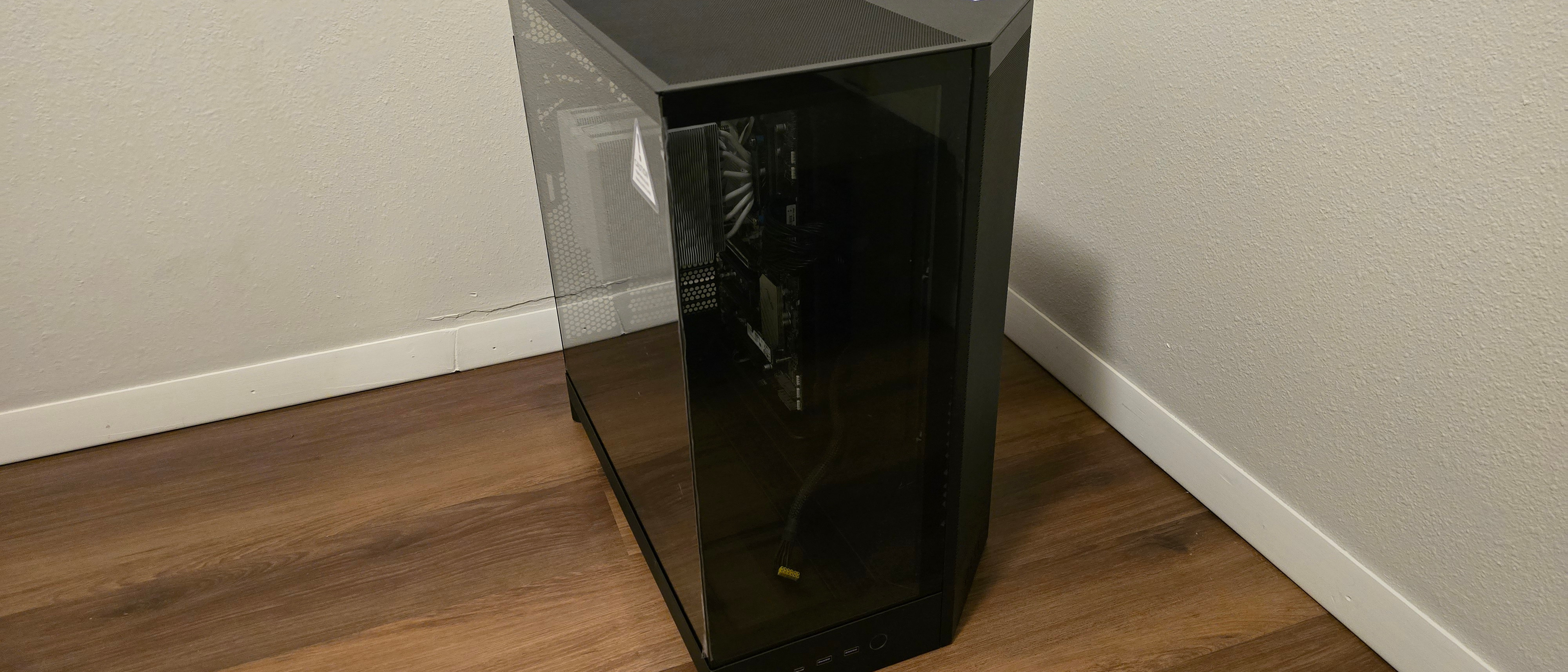
Specifications
Reasons to buy
Reasons to avoid
NZXT’s 2025 H9 Flow has a sleek design, without RGB bling. It's spacious inside, with lots of room to work with on both sides of the case. The main chamber supports the largest GPUs on the market and dual 420 mm radiators, while the back has extra space for cable storage.
Liquid cooling enthusiasts will be pleased to know the H9 Flow supports two 420mm radiators, along with its angled intake fans, for the best possible temperatures. And storage fans will appreciate the support for up to six SATA drives – the most we’ve seen on a mainstream case in quite a while. The H9 Flow brings a lot to the table in terms of features and support, and it doesn't lean too heavily on your bank account, selling for $169 when we wrote this.
Read: NZXT H9 Flow (2025)
Best Case for High-End Rigs and Workstations
Specifications
Reasons to buy
Reasons to avoid
Fractal's Meshify 2 is well-thought-out and versatile, delivering an enjoyable building experience. Whether you use this case as a system where you just want to deliver copious amounts of airflow and expansion space, a workstation with a cadre of hard drives, a server, or high-end custom liquid cooling, the Meshify 2 can accommodate your build. Its thermal and acoustic performance is also in line with what we'd expect from a mesh front. All this cobined earns this case a rare five-star rating.
The only thing to consider before hitting the buy button is whether you really need the space for storage or cooling parts, or should you buy a smaller chassis and save some money and sapce?
Read: Fractal Design Meshify 2 Review
Also tested
Not every case we test earns a spot on our best list. Whether it be for a lack of features, high price, poor performance, or something else, the cases below aren't the best we've tested. But the best PC case for you has to be something you like to look at. So the cases we've tested below may be worth considering, especially if you find them on sale.
Cougar Airface Eco:
Cougar’s oddly named Airface Eco case features a decent all-around design, support for large GPUs in vertical orientation, a modular IO panel, and a built-in GPU holder. It also sports a distinctive front face with large holes, but doesn't otherwise stand out in terms of features or price. You can read more in our full Cougar Airface Eco review.
Be Quiet Dark Base 701:
Be Quiet’s Dark Base 701 is a high-quality. customizable case that offers one-touch fan and lighting controls from the top panel, and it performed well in our tests. It supports vertical GPU mounting, ample SATA storage, and custom liquid cooling reservoirs.
Read: Be Quiet Dark Base 701 review
Montech Air 903 Max:
This case doesn't do anything new when it comes to design or features. But with large motherboard support, good airflow thanks to four include fans, and a $75 price, there isn’t a whole lot to complain about.
Read: Montech Air 903 Max review
APNX V1:
This case combines angled front fans and optional wood accents, delivering good thermal performance and a reasonable price. But its looks aren't for everyone, and its screwed-down panels feel a little dated.
Read: APNX review
Be Quiet Light Base 900 DX: This case's solid build quality and attractive aesthetics are paired with the somewhat unique feature of having three different layout options. Thermal performance is middle of the road, which is to say while it might not be the best, it will be good enough for 97% of users looking to build a PC for gaming or mixed use. While there are multiple fan hubs, you'll have to supply you own fans.
Read: Be Quiet Light Base 900 DX review
MSI MEG Prospect 700R:
At aropund $380, the MEG Prospect 700R from MSI delivers a lot of features, like a top-mounted touchscreen for supporting various functions. Hinged doors make getting inside the case easy, and it is one of a limited number of chassis that allow fancy PSUs to show their displays.
But the case would be much easier to recommend if it didn't cost so much. In particular, it should include a GPU support bracket for horizontal mounts and a PCIe riser cable for vertical mounting, considering its nearly $400 asking price.
Quick PC Case Shopping Tips
🛒 Figure out what parts you have/want first.
Before prioritizing looks, you’ll want to know what motherboard, graphics card, and cooler you’ll be using, plus how many drives you’ll want to install. This will dictate the size of the cases to consider.
🛒 Cooling is key, especially in small cases.
Airflow is important in choosing the best PC case, especially when it comes to high-end components in tight spaces. Check our cooler reviews for our cooling test results before buying, and remember that cases with glass fronts and tops restrict airflow and may need extra fans.
🛒 Choose a chassis that you like to look at.
Your case of choice is likely to spend lots of time in your peripheral vision. Don’t forget to check airflow and that your parts will fit. But after that, find something that appeals to you visually. Take the time to find a case that appeals to you visually. If you want to show off your case's internals, a case like Hyte's Y60 with its panoramic glass is certainly appealing. But know that generally speaking, the more glass found on a case, particularly in the front, the warmer your system is likely to run.
MORE: Best PC Cases
MORE: Best Mini-ITX Cases
Get Tom's Hardware's best news and in-depth reviews, straight to your inbox.
After a rough start with the Mattel Aquarius as a child, Matt built his first PC in the late 1990s and ventured into mild PC modding in the early 2000s. He’s spent the last 15 years covering emerging technology for Smithsonian, Popular Science, and Consumer Reports, while testing components and PCs for Computer Shopper, PCMag and Digital Trends.
-
abryant Archived comments are found here: http://www.tomshardware.com/forum/id-3761873/cases.htmlReply -
1_rick In the info block at the top, the "review" link for the H200i goes to the Define R6 review; it's correct at the page bottom.Reply -
Scrotus Why are front panel USB ports, power switches, activity lights, etc. placed on top of cases? If I interpret correctly a desktop computer indicates it is placed on your desktop. My last 3 or 4 cases had everything on top and I couldn't see them without standing up and the hard drive activity light was out of sight while I'm sitting in my normal position. I wish they would start putting front panel stuff on the front panel and not on top of the case.Reply -
Lucky_SLS The pc O11 dynamic will get a 2/5 in Tom's review cuz they test it at stock fan configuration. Maybe that's why it's not in the list XD.Reply
But you still have the pc o11 air and Lan cool one to test! Reviews for the lancool one digital asap plz! -
invisiblezombie A lot of cases aren't available in this part of the world and computer parts are priced at 50% or higher premium against US prices. Amongst those that were, I found Corsair Obsidian and Corsair Carbide cases generally good but overpriced. Personally I liked the Corsair Obsidian 750D most, but purchased what I consider the next best case and much better value for money - the Antec 1100 V2. Being the first desktop I assembled myself, the Antec 1100 made the job a lot easier.Reply -
kep55 Why do so many of the top cases have glass panels? Glass is a bit of a thermal insulator, add unnecessary weight, and serves no practical purpose in a PC case. If you want to see all your gear, don't bother putting it a case.Reply -
fredfinks Reply21359713 said:Lol. No thanks. Lian-Li for me
I had the Lian Li A20. It was an expensive beast, and a damn good case, but i find Fractal Design's cases to be more practical, same build quality - if not better, and definitely quieter.
The thin aluminium of the Lian Li was prone to vibration. -
fredfinks Reply21360113 said:Why are front panel USB ports, power switches, activity lights, etc. placed on top of cases? If I interpret correctly a desktop computer indicates it is placed on your desktop. My last 3 or 4 cases had everything on top and I couldn't see them without standing up and the hard drive activity light was out of sight while I'm sitting in my normal position. I wish they would start putting front panel stuff on the front panel and not on top of the case.
It's a legacy name thing from a time when your CRT monitor sat upon a PC case that was designed to be laid flat & sit on a desk. It then served as a distinction between laptops & other equipment.
If you have your mid-tower case on your desk you are doing it wrong.
Its noisier and it eats up valuable desk real estate. Its a big stupid box on a desk - F it off.
'But how else can we look at the purty lights?!' they might ask. That's where it all went wrong.
